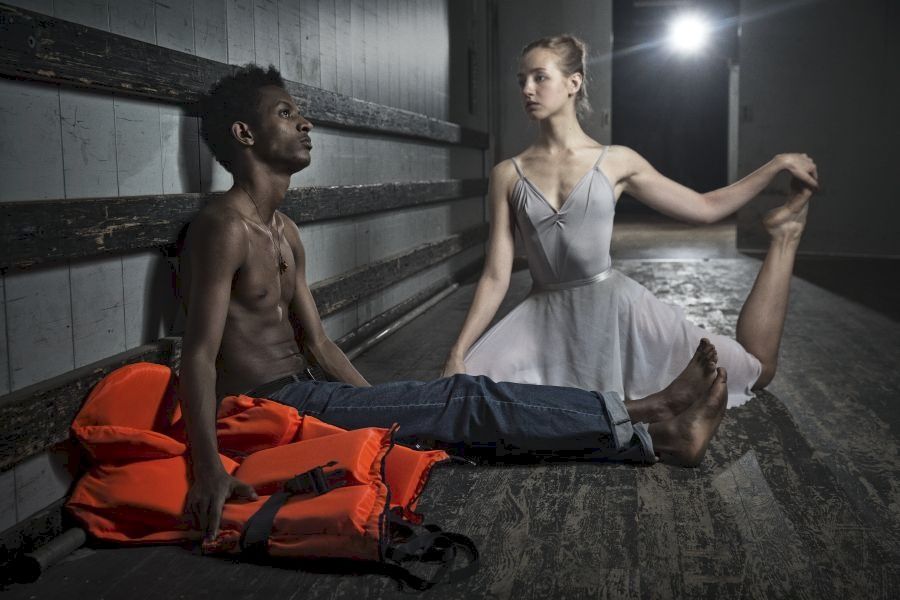Right now Europe is dealing with the biggest incoming stream of refugees in recent times. Most people have been welcoming of the many asylum-seekers, but there have also been people voicing their scepticism about why they are here and if they are going to contribute anything to society. Some of these questions are addressed in ‘Uropa’.
This ballet introduces and explains to the audience what a refugee is and why they need our help. It is explained in a way that makes even the most cynical and mistrusting people understand the necessity.
6 refugees and 5 dancers
In this very nostalgic ballet staging, six asylum-seekers from different countries are matched with five ballet dancers from the Royal Ballet and given the chance to tell their own personal story of why they had to flee and leave everything behind.
They all had different reasons to leave, but after listening to their emotional stories, it is made very clear to the audience that they did not have the option to stay.
First-time visitor
As a first-time attendee at a Royal Ballet, I think both dancers and speakers did a fantastic job of capturing the audience with their words and their movements, which created a serious, sombre mood on stage.
The professional ballet dancers thrilled the audience with their theatrical and impressive movements during the tense narrations, while dramatic music from the talented one-man band Mikkel Hess played in the background.
The performance in focus
The scenography and costumes were minimalistic. The only props in used were the tables and chairs, and everyone on stage was dressed in an outfit of their own choosing that was supposed to express and show their personalities – some costumes indicated more than others.
Altogether it helped put the focus squarely on the dancers and their stories. The absence of distracting props in particular was a nice touch.
Bringing up the unmentionable
At the beginning, they took their time to get started with the actual story, but once it was got going, the two-hour duration passed quickly as every scene had a purpose and made an effect.
When we left the theatre, we did so with a feeling that ‘Uropa’ had tried to provide answers to some of the difficult questions being asked in Europe at the moment.
















